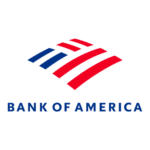7 Credit Cards for 18-Year-Olds in 2023
With proof of income, 18-years-olds can apply for credit cards independently. Secured credit cards are the easiest ones to get. There are also no deposit credit cards options available to individuals of this age group. Here are our best picks for credit cards for 18-year-olds to consider.

Table of Contents
- 7 Best Credit Cards for 18-Year-Olds
- 1. Discover It® Student Cash Back Credit Card
- 2. Deserve® EDU Mastercard
- 3. Capital One Quicksilver Student Cash Rewards Credit Card
- 4. Discover It® Secured Credit Card
- 5. Bank of America® Customized Cash Rewards Secured Credit Card
- 6. Capital One SavorOne Student Cash Rewards Credit Card
- 7. Chase Freedom Flex℠
- How To Choose the Best Card for an 18-Year-old
- Secured vs Unsecured Credit Cards
- How Long Does It Take to Build Credit
- FAQs
18-year-olds can apply for credit cards if they have proof of income. The applicant does not need to have a job to qualify, they can show bank deposits or monthly allowance from their family members, or even leftover financial aid as proof of income.
The best credit cards for 18-year-olds are the ones with high approval odds, minimal charges, and low introductory interest rates. Some may even offer rewards or sign-up bonuses. You should also look for a card that reports your payment history to the three major credit bureaus every month, to help you build up a good credit score.
There are three main types of credit cards that 18-year-olds can apply for including secured credit cards, student credit cards, and no-deposit cards for low credit or no credit. Secured credit cards are the easiest cards to get as they do not require a credit check. You need to put down a security deposit that will serve as your initial credit limit. Student credit cards usually come with various rewards and are the next best option for young adults, however, they are only available to individuals enrolled in a college or a university. Those who have a limited credit history of 3 years or less, may also apply for general unsecured credit cards for limited credit. However, these no-deposit cards may come with higher rates.
We’ve rounded up the seven best credit cards for young adults 18 years and older, along with their fees, pros and cons, and eligibility requirements.
7 Best Credit Cards for 18-Year-Olds
| Lender | Scholaroo rating | Regular APR | Credit Score |
|---|---|---|---|

Discover It® Student Cash Back Best for students Visit website | 18.24% - 27.24% | N/A | |

Deserve® EDU Mastercard Best for low credit score Visit website | 22.99% | N/A | |

Capital One Quicksilver Student Cash Rewards Best for a simple cash back rewards program Visit website | 19.99% - 29.99% | 580+ | |

Discover It® Secured Great for building credit with no fees Visit website | 28.24% | N/A | |

Bank of America® Customized Cash Rewards Secured Credit Card Great secured card with cashback rewards Visit website | 25.74% | N/A | |

Capital One SavorOne Rewards Best for overall rewards Visit website | 19.99% - 29.99% | 580+ | |

Chase Freedom Flex℠ Best for 0% APR for first 15 months Visit website | 20.49%–29.24% | 690+ |

Discover It® Student Cash Back
Best for students

Deserve® EDU Mastercard
Best for low credit score

Capital One Quicksilver Student Cash Rewards
Best for a simple cash back rewards program

Discover It® Secured
Great for building credit with no fees

Bank of America® Customized Cash Rewards Secured Credit Card
Great secured card with cashback rewards

Capital One SavorOne Rewards
Best for overall rewards

Chase Freedom Flex℠
Best for 0% APR for first 15 months
1. Discover It® Student Cash Back Credit Card
2. Deserve® EDU Mastercard
3. Capital One Quicksilver Student Cash Rewards Credit Card
4. Discover It® Secured Credit Card
5. Bank of America® Customized Cash Rewards Secured Credit Card
6. Capital One SavorOne Student Cash Rewards Credit Card
7. Chase Freedom Flex℠
How To Choose the Best Card for an 18-Year-old
According to the Credit Card Accountability Responsibility and Disclosure (CARD) Act of 2009, credit card applicants under 21 years need to have a co-signer or provide proof of sufficient income. Since most credit card issuers have stopped allowing cosigners, it may limit some 18-year-olds who don’t have sufficient income.
If you don’t have any income it might be a better option to become an authorized user on a parent or family member’s credit card. Authorized users often get their own card and benefits.
Here are a few things to consider when choosing between different credit cards for 18-year-olds:
- Annual fees: Some credit cards will have annual fees so compare these fees against the benefits that these cards offer. In some cases, the benefits will outweigh the fees, especially if they can help you build your credit.
- Credit scores: Even with an income you might not have enough credit to qualify for specific cards. Secured credit cards and student credit cards typically have less strict requirements.
- Rewards: Some cards can offer rewards, like miles or cash back, when you make eligible purchases. This can be a great way to save money, especially if you love to travel.
- Benefits: Credit card benefits can include purchase protection or travel insurance, for example. But this may lead to a higher annual fee, so compare the benefits against the fees when choosing between cards.
- Interest rates: Credit cards typically have higher interest rates, and this is expressed as the Annual Percentage Rate (APR). If you want to avoid higher interest credit cards, consider cards with lower variable APRs.
Secured vs Unsecured Credit Cards
Secured credit cards require a security deposit as collateral, and this will typically also function as your initial credit limit. For example, if you deposit $500, your credit limit would typically be $500. The main purpose of this card is to build or rebuild your credit history.
If you don’t make payments on time, the card issuer will take money from your deposit. If you pay your credit card bill on time, your credit score will improve, and you may eventually qualify for an unsecured card.
When you close the account or switch to an unsecured card, your deposit is returned, given that you’ve paid off what you owe.
Unsecured credit cards are the standard credit cards that most people think of, and they don’t require a security deposit. The credit limit is set by the bank based on your credit history, income, and other factors like your debt-to-income ratio.
If you fail to pay your bills, you won’t lose your deposit as you would with a secured card, but it will significantly impact your credit score.
How Long Does It Take to Build Credit
Building credit is a process that takes time and discipline. If you’re starting from scratch, e.g. as an 18-year-old or a student, it generally takes at least six months of credit activity before a credit score can be calculated. This is because most scoring models need at least one account on your credit report that has been open for six months or longer.
FAQs
Can an 18-year-old get a credit card?
There are many credit card options available for 18-year-olds, including secured credit cards, and unsecured credit cards that do not require a minimum credit score. Examples include the Discover It® Secured credit card and the Deserve® EDU Mastercard credit card.
What is the easiest credit card to get at 18?
Secured credit cards are typically easier to qualify for if you have a limited credit history, but you’ll need to put down a security deposit. Student credit cards are specifically designed for college students and they have lower eligibility requirements compared to other cards.
What credit card can I get at 18 with no credit?
Look for credit cards specifically aimed at students or young adults with a limited credit history. We recommend the Discover It® Student Cash Back credit card as it has great rewards and the Deserve® EDU Mastercard as it you don’t need a security deposit, a Social Security Number, or a cosigner to apply.









